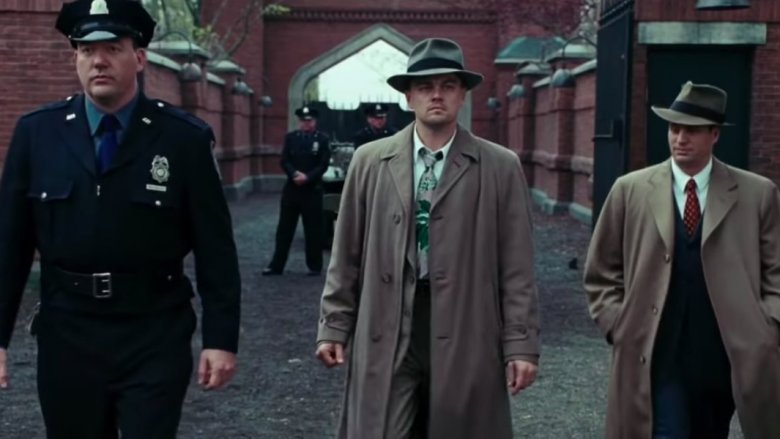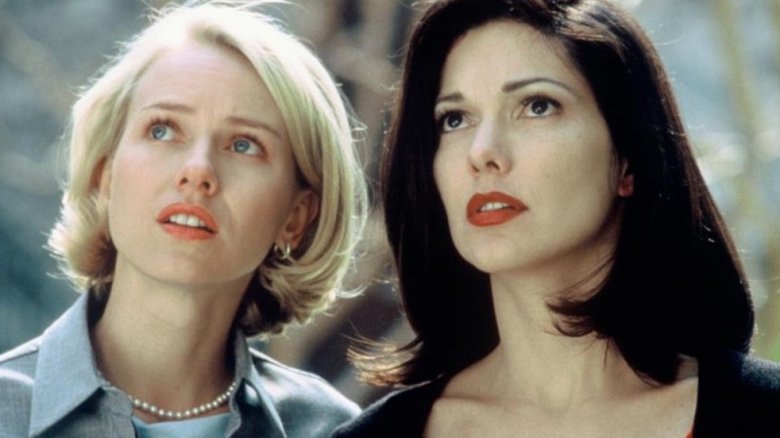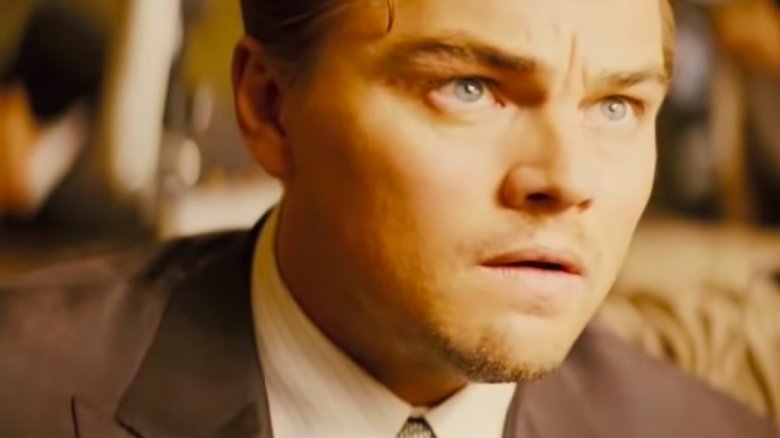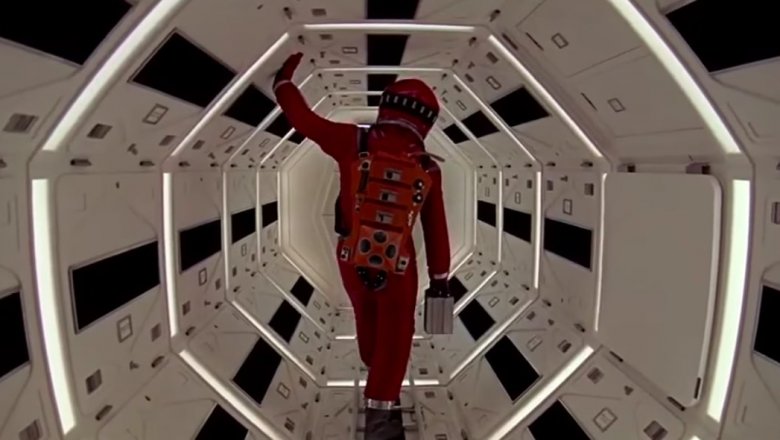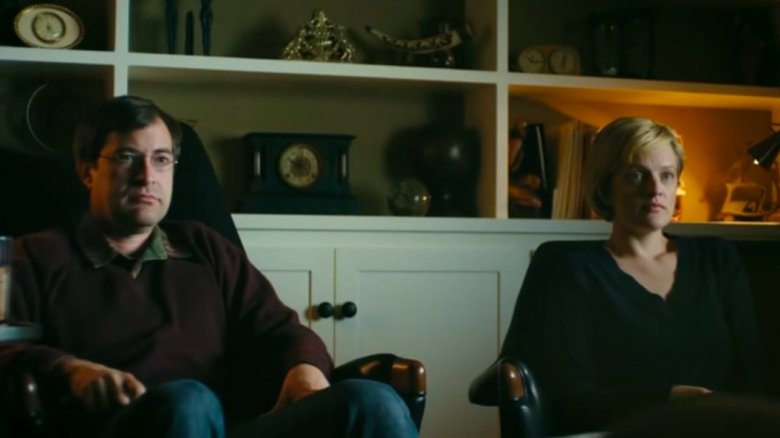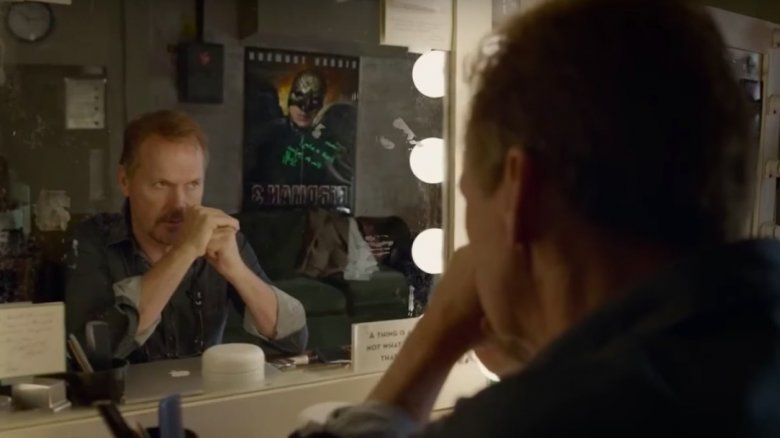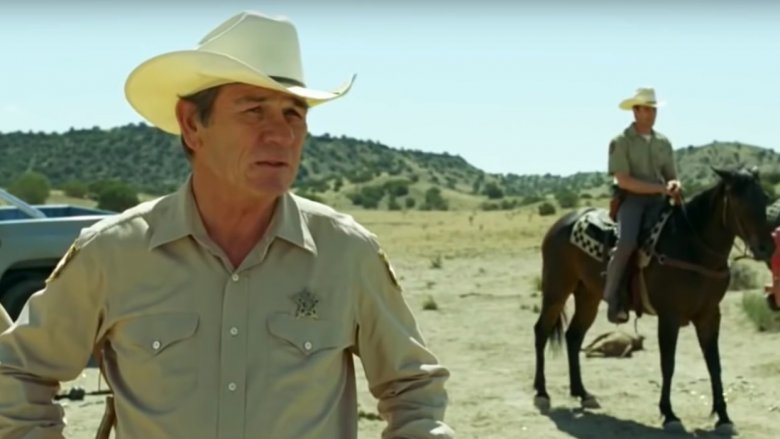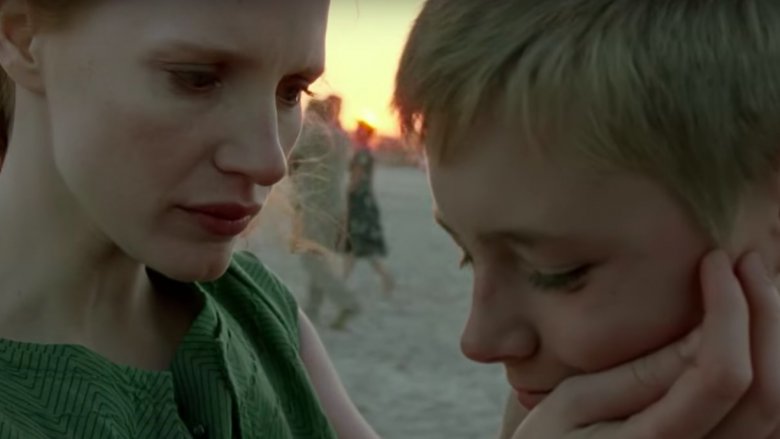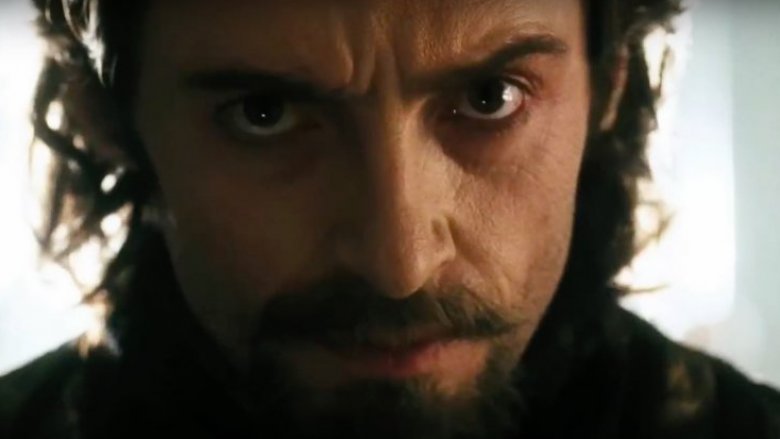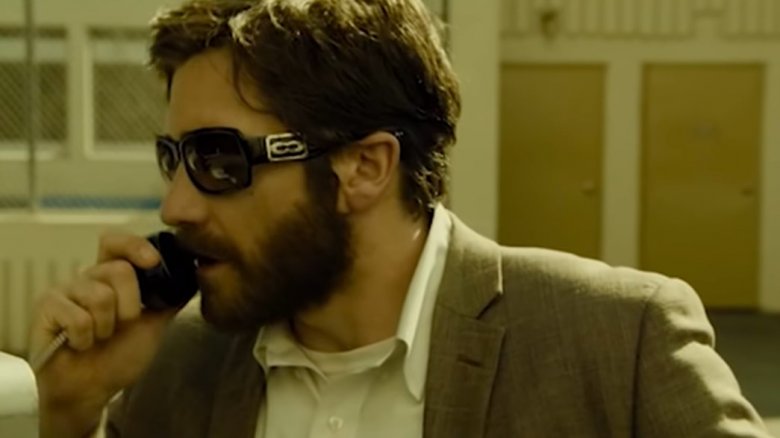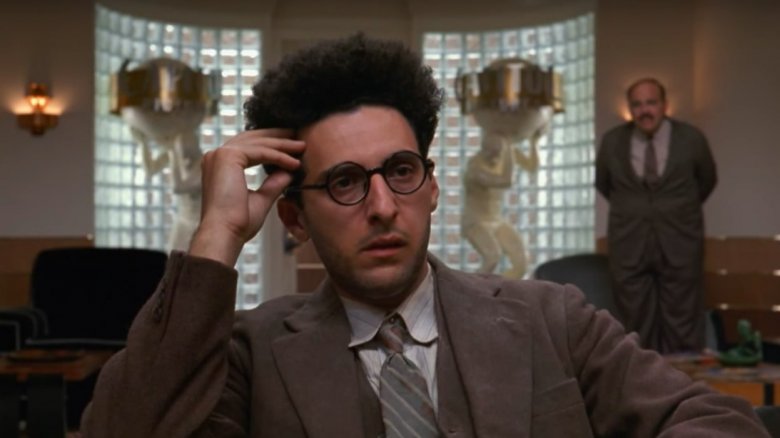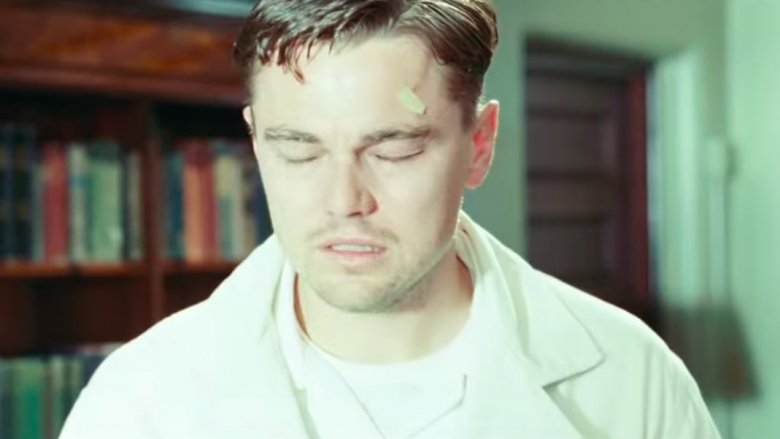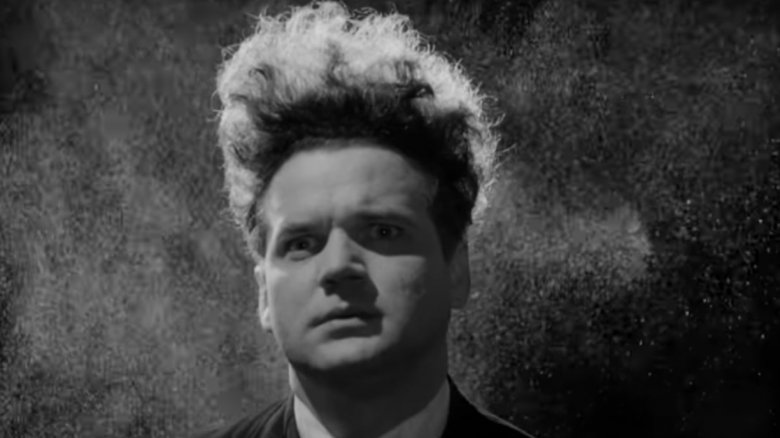Movie Endings That Will Never Be Explained
Some movies seem fairly straightforward until the final act, when everything you thought about the plot is suddenly subverted. Others are simply surreal all the way through. If you've ever left the theater wondering, "Uh... what just happened?" you're not alone. While some audiences can't stand movies with open-ended conclusions, other people love trying to decipher exactly what just happened.
Sometimes, an unexplained ending is just plain confusing. When done right, though, it can make the entire film much more intriguing. You might even want to go back and watch it over and over again, just to search for clues that let you in on the hidden meanings in the final scenes. These films present a challenge to the critical viewer. Every detail is like a puzzle piece, and you have to pay close attention. Here are a few films that left audiences and critics alike wondering what they were supposed to think. Check them out, but beware of spoilers ahead... and be prepared to rewatch the last few scenes to figure out what was really going on.
Mulholland Drive
If you're going to watch Mulholland Drive, you can't just have one eye on the screen and the other on your phone — you have to stay focused to make sense of what looks like an abstract plot on the surface. Directed by David Lynch, this neo-noir mystery film stars Naomi Watts, Laura Harring, and Justin Theroux. The main storyline follows aspiring actress Betty Elms, who becomes friends with an amnesiac woman who calls herself "Rita" after losing all memory of her identity in a car accident. A string of other characters weave in and out of the plot, including a waitress named Diane Selwyn, who Rita eventually remembers from her life before the accident. Sort of.
The movie's biggest turning point occurs when a performance at the surreal Club Silencio triggers some memories for the main characters. The film ends with Diane committing suicide in her apartment after experiencing terrifying hallucinations. The final shot cuts back to the club, where a lone spectator whispers, "Silencio." Lynch refuses to give an explanation for the ending of the film, which was added to transform a failed TV pilot into the mind-bender of a movie Mulholland Drive became.
Inception
From start to finish, Christopher Nolan's Inception is a masterpiece of a film. The concept of planting an idea in someone's subconscious through their dreams was inherently interesting, and although zoning out during the film basically ensured that you would miss out on an important plot point, it wasn't too hard to follow overall. But when Inception was released in theaters back in 2010, everyone was really buzzing about the ending. While the general plot was relatively easy to understand, the ending of the film was left up to debate.
The protagonist of the film, Cobb (Leonardo DiCaprio) relies on his totem, a spinning top, to indicate whether he is dreaming or back in reality. In the final scene of the movie, we see him reunite with his children, and he spins the top, knowing that if what he's experiencing is real, it will fall over... but he walks away to spend time with his family, and the screen cuts to black before we see whether the top will fall. Unfortunately, we'll never know whether or not Cobb returned to reality, or if he remained within the realm of dreams.
2001: A Space Odyssey
2001: A Space Odyssey is regarded as one of Stanley Kubrick's finest films. In fact, this science fiction film has actually been preserved in the National Film Registry because of its massive cultural impact. Although it was released 50 years ago to mixed reviews from critics, it still stands out as a classic, and it gained a cult following that has persisted to today. But the ending still baffles fans of the film, and Kubrick never totally clarified the meaning of the final scenes.
As the film builds to its conclusion, a strange scene plays out that doesn't seem totally cohesive with the rest of the plot. The scientist Dr. David Bowman (Kier Dullea) is pulled through space and time, on a journey through the cosmos, and ends up aging through older versions of himself before turning into a fetus. The fetus is enveloped in a glowing orb, and he ends up floating beside the Earth. The credits begin to roll, and the audience is left to interpret the significance of that final moment.
The One I Love
The One I Love is one of those rare films that combines science fiction and romance — but it's not exactly a futuristic rom-com. It's an exploration of the human psyche that raises the question: what are you willing to ignore for the sake of love?
When Ethan (Mark Duplass) and Sophie (Elisabeth Moss) go to a therapist (Ted Danson) for advice on their struggling marriage, he sends them on a retreat to a remote estate where they can be alone and reconnect. But after some time at the estate, both of them realize that they have actually been encountering each other's doppelgangers. Their doppelgangers conspire to drive a wedge between them, and eventually, Ethan makes a break for it and leaves the estate, taking Sophie with him. When they finally return home, it's unclear whether or not he left with Sophie or her doppelganger, but Ethan decides to live with the uncertainty. The audience will have to, as well.
Birdman
Birdman (or the Unexpected Virtue of Ignorance) follows Riggan Thompson (Michael Keaton) as he attempts to move past his expired career as an actor known for playing the superhero Birdman. Although he is always hearing Birdman's voice in his head and seeing his image, Thompson wants to be seen as a more serious actor, and he stars in a Broadway adaptation of the famous Raymond Carver short story "What We Talk About When We Talk About Love." But his performances are rocky, and although he goes viral after an impromptu walk through Times Square in his underwear, his newfound publicity is not enough to make him feel content.
By the end of the film, it's clear that Thompson simply can't shake the Birdman persona. He is shown attempting suicide on stage, and although the play receives rave reviews after this, something has broken inside Thompson. It's heavily implied that he takes his own life in the final sequence after saying goodbye to Birdman, but Thompson's fate is never confirmed — he jumps out a window, and we're left with the sound of fluttering wings.
No Country for Old Men
No Country for Old Men was an instant classic when it was released in 2007. Based on the novel of the same name by Cormac McCarthy, the film was a hit with critics, and it is often referred to as the Coen Brothers' best film. It won several Academy Awards, including Best Picture and Best Adapted Screenplay, and it was named one of the best films of the 21st century. But despite all of these accolades, fans of the film still remain divided on how to interpret the ending.
As the film comes to a close, Sheriff Ed Tom Bell (Tommy Lee Jones) tells his wife about two seemingly random dreams that he had, neither of which seems particularly relevant to the plot of the film. In one dream, he lost money given to him by his father. In the other, he was making his way through a mountain pass with his father, who went ahead to make a fire and wait for him. What do his dreams really mean? It's up to the audience to decide.
The Tree of Life
If you were confused by the ending of director Terrence Malick's The Tree of Life, don't worry — it's not supposed to be your standard three-act plot with a neat conclusion that ties up all the loose ends. The Tree of Life is one of those truly abstract, experimental films, and although experimental films don't always enjoy such mainstream success, The Tree of Life was nominated for Academy Awards for Best Director, Best Picture, Best Cinematography.
The final scene of the film is a surreal sequence. The protagonist, Jack O'Brien (Sean Penn), leaves his office after reflecting on his brother's death, and he experiences a vision of the future. He witnesses the sun turning into a red giant and swallowing the Earth, and then follows a younger version of himself across a sandbar, where he is reunited with his family, both living and dead. His mother (Jessica Chastain) looks skyward and says, "I give him to you. I give you my son," hinting at some sort of Biblical theme.
The Fountain
The Fountain was directed by Darren Aronofsky, so right away, audiences and critics knew that there were going to be experimental elements worked into the plot. The film is not easily defined by any conventional genre — you could call it a romantic drama, a fantasy movie, a spiritual epic, or even a sci-fi film. Tomás Verde (Hugh Jackman) and Izzi (Rachel Weisz) continue to meet in different incarnations at various points through time, and the themes of love and immortality play a role throughout the entire film. The two believe that they will finally be together when the golden nebula of Xibalba finally turns into a supernova.
As the film draws to a close, Tomás tries to heal a stab wound by applying sap from what he thinks is the Tree of Life, but instead of healing him, the sap causes flowers and grass to grow from his body. In the following scenes, the tree dies, the star becomes a supernova, the tree comes back to life as it absorbs Tom (the Tomás of the future), and a vision of Izzi appears to pick fruit from the tree for Tom, who then places it in her grave. Needless to say, it's difficult to put into words exactly what's happening.
Enemy
Enemy is a riveting film, but the ending is one of those conclusions that makes you squint a little and ask, "Wait, did I really just see what I think I saw?" This psychological thriller, directed by Denis Villeneuve and starring Jake Gyllenhaal, is based on José Saramago's book The Double. It follows Adam Bell and Anthony Claire (both Gyllenhaal), two men who are completely different in terms of personality, yet look so alike they could easily be twins.
Towards the end of the film, Anthony is thought to be killed in a car crash, but Adam lives on — he has convinced Anthony's wife, Helen, that he is actually Anthony. Adam calls to Helen, who is in the bedroom, to tell her that he plans to go out that night. When she doesn't respond, he enters the room, only to find out that Helen is no longer there. Instead, she has been transformed into a giant, black tarantula with no warning. He doesn't freak out — he simply sighs, and Helen's metamorphosis is never explained.
Barton Fink
Barton Fink has certainly made its mark on cinema history. Despite the fact that it was not a huge success at the box office, it was positively received by critics and was even nominated for several Academy Awards. The film can't be easily categorized as one genre — some will argue that it's actually a horror film, while others insist that it has elements of film noir. But even if you feel like it fits squarely into one genre or the other, one thing that every viewer can agree on is the fact that the ending will definitely trip you up.
Barton (John Turturro), a struggling screenwriter, is holed up for much of the film in a drab hotel room in Los Angeles, which is decorated solely with a picture of a woman on the beach. The story strongly suggests that his mental health is slipping. After suffering an intense breakdown, Barton ends up at the beach, where he meets the woman from the picture. Her presence is never explained, and the ending still baffles viewers to this day.
Shutter Island
It sometimes seems like Leonardo DiCaprio is one of those actors who just can't make a bad movie. There are some exceptions, but Shutter Island isn't one of them. It's one of those films with a twist that no one saw coming, which takes a good movie and turns it into a great one.
The film follows U.S. Marshal Teddy Daniels (DiCaprio) as he investigates the disappearance of Rachel Solando (Emily Mortimer), a patient at a hospital for the criminally insane. Solando was accused of killing her three children. But as the "investigation" progresses, it's eventually revealed that "Teddy" is actually Andrew Laeddis, a patient at Shutter Island who killed his wife after she murdered their children during a manic episode. Laeddis is told that if he sees no chance at his own redemption, he will be lobotomized. He presumably chooses the lobotomy, but one question is left unanswered: was he actually insane, or did he want to remove the memory of his crimes through any means possible?
Eraserhead
Eraserhead can be a difficult watch at times. Like most body horror films, the imagery can be exceptionally disturbing. Although it didn't get much buzz when it was initially released, it was eventually added to the National Film Registry because of its significance to the medium. The first feature directed by David Lynch, the film explores the plight of Henry Spencer (Jack Nance), who must care for his newborn child — but it's clear that the child is not fully human, and something is drastically wrong. He is comforted throughout his tribulations by visions of a dancer known only as the Lady in the Radiator (Laurel Near).
The child is swaddled through most of the film, but in the final sequence, Spencer finally cuts open the binding. Chaos ensues. The child grows rapidly, the lights in the room burn out, and the child's expands until it fills the room. We see a planet beginning to burst apart, and a man inside controlling it is frantically pulling levers. Spencer then finds himself face-to-face with the Lady in the Radiator, who embraces him as they are engulfed in a cacophony of light and sound.
